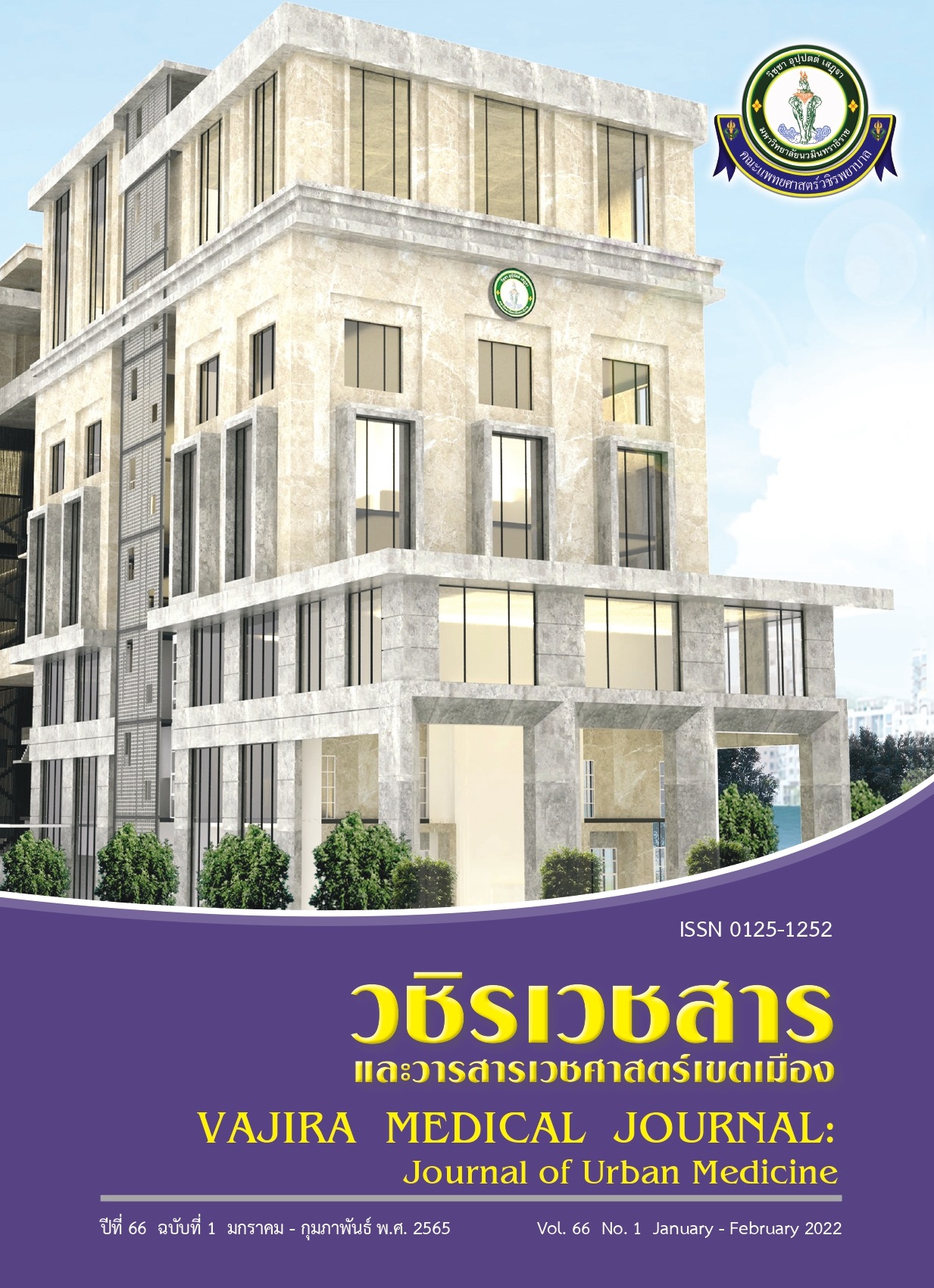Hope of Parents in Children with Hearing Impairments: A Qualitative Study
Main Article Content
Abstract
Background: Hope are related to individual perception and ways to reach their goals. Parents who have high level of hopes can cope with their child disability better than parents who are hopeless.
Objective: To explore the meaning and importance of hope, and the factors that encourage and discourage the hope of parents of children with hearing impairments.
Methods: This qualitative study were conducted by interviewing ten parents of children with hearing impairments. An indepth interview was performed to receive information, and the content analysis was used to analyze these qualitative data.
Results: The results from parents’ perspective showed that most of the parents defined their hope as their goal, and hope determines their direction to success. Most important internal factor that encourage the parents hope was positive thinking of their child condition and the external factor was the family support. The discouraged factors that parents reported the internal factors were stress and anxiety, and the external factors were the lack of understanding by professionals and parents misbelieve their child disability.
Conclusions: Hope in parents, from personal experience, were defined as their goals or guideline for determination and driven to success. There were both internal and external factors that encouraging and discouraging their hope. This study suggests that promoting knowledge of hearing impairment in children to parents and professionals is essential in raising parents hope. Also, these results can be utilize to develop related national policies supporting parents hope.
Downloads
Article Details

This work is licensed under a Creative Commons Attribution-NonCommercial-NoDerivatives 4.0 International License.
References
Watson S, Hayes S, Radford-Paz E, Coons K. “I'm hoping, I'm hoping...”: Thoughts About the Future from Families of Children with Autism or Fetal Alcohol Spectrum Disorder in Ontario. J Developmental Disabilities 2013;19(3):76-93.
Kausar S, Jevne RF, Sobsey D. Hope in families of children with developmental disabilities. J developmental disabilities 2003; 10:35-45.
Shenaar-Golan V. The subjective well-being of parents of children with developmental disabilities :The role of hope as a predictor and fostering of well-being. J Soc Work Disabil Rehabil 2016 ;15(2):77-95.
Snyder CR, Lopez SJ. Handbook of positive psychology. Oxford: Oxford University Press; 2002.
Nordheim T, Rustøen T, Solevåg AL, Småstuen MC, Nakstad B. Hope in Parents of Very-Low Birth Weight Infants and its Association with Parenting Stress and Quality of Life. J Pediatr Nurs 2018;38:e53-8. doi: 10.1016/j.pedn.2017.10.006
Cooke JE. Hope, Optimism, Stress, and Social Support in Parents of Children with Intellectual Disabilities [dissertation]. Southern Mississippi: Southern Mississippi University 2010.
Kavradim ST, Ozer ZC, Bozcuk H. Hope in people with cancer: a multivariate analysis from Turkey. J Adv Nurs 2013;69(5):1183-96.


